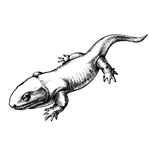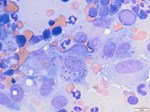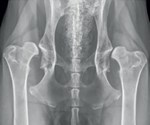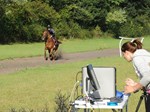Search - All Results
1261 - 1270 of 1836 results
-
New study explains how fish got their fingers
New analysis of anatomical evidence shows how the limbs of land vertebrates (such as mammals and reptiles) originated from the fins of water-bound fishes. -
Three Innovation Fellows appointed to lead research on infectious diseases
Three Innovation Fellows have been appointed, including two at the RVC, to undertake studies aimed at producing new diagnostic tools for infectious diseases. -
RVC PhD student co-authors research briefing for parliament
Fourth year student Alana Dowling has co-authored a research briefing for Parliamentarians as part of her three month science policy internship at the Parliamentary Office of Science & TechnologyFourth year PhD student Alana Dowling has co-authored a research briefing for Parliamentarians as …
-
RVC researcher part of emergency international response to disease outbreak in the Congo
A post-doctoral researcher from the RVC is part of an international consortium of experts, PANDORA ID NET, that responded to an outbreak of Chikungunya in the Republic of the Congo.A post-doctoral researcher from the RVC is part of an international consortium of experts, PANDORA …
-
RVC diagnoses first case of leishmaniosis transmission between dogs in the UK
A vet from the RVC has recently been involved in diagnosing the first case of leishmaniosis in a dog from the UK that has not travelled to an endemic area -
RVC identifies links and similarities between Osteoarthritis in dogs and humans in Landmark Nature Review
An international team of researchers, led by the RVC, have for the first time identified key similarities between osteoarthritis (OA) in dogs and in humans.An international team of researchers, led by the Royal Veterinary College, have for the first time …
-
RVC vet wins prestigious award for contributions to society
Dr Elsa Beltran, a vet and senior lecturer at the RVC, has received the prestigious Ángel Herrera Award for her invaluable professional contributions and commitment to social transformation -
300 million-year-old animal reanimated as a robot
International group of scientists construct a robot, which is able to recreate how a 300 million-year old animal would have walked -
New innovative study proves racehorses use less energy to gallop than previously thought
Researchers from the RVC have made use of force plate technology to accurately measure the external work of galloping in racehorses. This technique, which has never been used for such large animals at high speed before, showed that horses had much …Researchers from the RVC have made use of force plate technology to accurately measure the external …
-
#RVCisOpen for everybody
T RVC marked the end of LGBT History Month 2019, with two rainbow events to celebrate diversity and raise awareness of the new LGBT+ Staff & Allies Network










